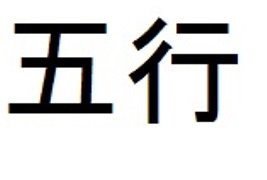 Most of us are familiar with the four elements of Western thought—earth, air, fire, and water. Daoism offers us something that sounds similar, but differs in important ways. They are called the Wu Xing: the 5 phases, movements, or stages. The Wu Xing are used throughout traditional Chinese thought—in medicine, politics, art, and more. I call them the Five Pathways.
Most of us are familiar with the four elements of Western thought—earth, air, fire, and water. Daoism offers us something that sounds similar, but differs in important ways. They are called the Wu Xing: the 5 phases, movements, or stages. The Wu Xing are used throughout traditional Chinese thought—in medicine, politics, art, and more. I call them the Five Pathways.
Understanding the Five Pathways and their role in your writing will empower you to create a writing process that is perfectly in sync and bring greater productivity, success, and joy to your writing life.
Get my free weekly strategies for writers.
The Pathway of Water
Water flows. It moves around obstructions, finding the path of least resistance. It moves easily and without effort.
When we take the Water Path, we allow our writing to go where it naturally wants to go. We relax and flow with the current. Instead of trying to knock down everything in our way, we move over, under, and around it—and we keep moving.
Even as water flows around obstacles, it gradually erodes them. By “going with the flow,” on the Water Path we can slowly wear away at the things that hinder our writing.
The Pathway of Wood
Wood comes from the growth of trees. It is development, generation, and life. Trees reach outward and upward. They continually regenerate and expand.
When we follow the Pathway of Wood in our writing, we seek ways to grow. We strive to reach higher and to bear fruit. When our writing is developing and regenerating—when we are in a process of learning and discovery—we are following the Pathway of Wood.
The Pathway of Earth
Earth is centering, stabilizing, and nurturing. Nothing is steadier than the Earth.
Following the Pathway of Earth, means being patient, practical, and hardworking. When our writing is like the Earth, it is completely grounded and rooted. We work with humility and simplicity. Like the Earth, we do not strive, but rather endure.
The Pathway of Metal
Metal is the strongest and most unyielding of the pathways. It is also the sharpest: Metal cuts.
When we write on the Pathway of Metal, we are forceful, persistent, and ambitious. We aim for success and we have great resolve. We are determined to achieve as much as possible. Like metal, we cut through everything in our way. We yield to nothing.
The Pathway of Fire
Fire is a perfect metaphor for creativity. Writers know what it feels like when our writing is “on fire.” Passion, desire, and creativity are all part of the Fire Path.
Just as fire can be destructive, the Fire Path can bring anxiety, anger, and impulsive behavior. As we all know, the “artistic temperament” includes both great creativity and intense emotion.
Our writing lives are all combinations of the Five Pathways. For some writers, one or two pathways dominate while others lie dormant. A particular pathway may take control of your writing life for awhile, then another may take over. For most of us, all five are present to some degree.
Being attuned to the Five Pathways:
Enables you to create a writing process that draws on your particular strengths as a writer.
Helps you know when to flow around obstacles like water and when to cut through them like metal.
Enables you to balance the fire of creativity with earthlike groundedness.
Reminds you to continually expand, regenerate, and grow your writing.
Try this:
Free write on each of the five pathways. Think of the role each pathway plays in your writing process. Which ones do you follow most often? Which ones are latent in your writing life? How can you balance the pathways to create your best writing life?
I would like to work on the Wood Path more than I currently seem to.
The Wood Path is the one I need to work on more, too! I wonder if that’s true of most writers? I’m not sure.
What a wonderful way of viewing the writing process. Gives me much to ponder upon
Thanks, Rosanna. I’m glad you like it.